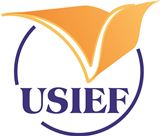 |
 |
| April – June 2021 |
|
|
Dear Friends and Colleagues,
Greetings from the United States-India Educational Foundation (USIEF). We hope this message finds you healthy and safe.
This year, we announced two new cost share programs for Indian citizens., Fulbright-Nehru Visiting Chair (FNVC) at Emory University and University of Massachusetts Amherst. These semester-long programs will provide an opportunity to the Visiting Chairs to lecture, and/or conduct research at the U.S. universities and promote mutual understanding through engagement with the host community. USIEF expects the Visiting Chairs to generate awareness in the United States about India and the contributions of Indian academia.
As you know, we are more than half-way through the year-long celebration of the Fulbright Program’s 75th Anniversary. August 1, 2021 is the anniversary of the launch of the Fulbright Program. You can visit our Facebook and Twitter Pages for events and stories and also visit the Fulbright75 website to know more about the global programs
We request you to please promote our news and events by sharing them with your friends and colleagues or promoting them on social media. We welcome your feedback and suggestions on who might appreciate receiving this newsletter.
Thanks and best wishes,
USIEF Communications Team |
|
Indian Fulbright Alumna Assesses the Impact of Climate Change on Coral Reefs
|
 |
Fulbright-Kalam Climate Fellow Afreen Hussain is a coral ecologist and is examining the impact of climate change on coral communities and suggesting measures for sustainable management and conservation of vulnerable coral reefs. As part of the Fulbright-Kalam Climate Fellowship at the U.S. Geological Survey National Wildlife Health Center, she investigated the role of heat shock proteins in a model coral organism—Aiptasia. Currently, she is a doctoral student in marine science at the Council of Scientific and Industrial Research (CSIR)-National Institute of Oceanography, Goa. 
|
Indian Fulbright-Nehru Alumnus Advocates Conservation of India’s Endangered Rice Varieties
|
Fulbright- Nehru alumnus Debal Deb, known as India’s rice warrior, is working to counter the genetic erosion of India’s vanishing rice varieties. He has established a rice gene bank that conserves traditional rice varieties. He advocates the need to improve agriculture using indigenous knowledge which would improve food production in an age of climate variations.
In his recent article, Dr. Deb discusses the impact of loss of traditional rice varieties on local communities, culture, and customs.
|
 |
“Wheels for Women”: An Initiative by U.S. Fulbright-Nehru Alumna for Marginalized Women to Achieve Financial Independence
|
 |
U.S. Fulbright-Nehru alumna and professor of theatre arts at Ithaca College, New York, Kathleen Mulligan, along with her husband, started “Wheels for Women” in 2010. This initiative partners with the “Sakhi Shelter,” a rescue home for victims of domestic violence in the state of Kerala, to provide shelter residents and community members the training necessary to become licensed auto rickshaw drivers. The training equips women who are victims of sex trade to gain job skills to achieve financial independence. During the pandemic, she helped to organize a virtual dance performance to raise funds for marginalized women. The event helped to raise funds, much higher, compared to previous years. 
|
Air Pollution and Health Risks Among Children in India: U.S. Fulbright-Nehru Alumna’s Publication in a Prestigious Journal
|
Unnati Mehta was a U.S. Fulbright-Nehru Student Researcher at the Indian Institute of Technology-Delhi. She worked with another Fulbright-Nehru scholar, Dr. Sagnik Dey, to study the health risks caused by air pollution among children in India. This study concluded that Indian children under the age of five exposed to higher levels of ambient PM2.5 were at greater risk of being anaemic. This work was recently published in the scientific journal Environmental Epidemiology. Unnati is currently a doctoral student of environmental epidemiology at the Harvard T. H. Chan School of Public Health.

|
 |
Indian Fulbright-Nehru Alumna Advocates Using Indigenous Communities Knowledge for Climate Change Adaptation
|
Nalini Bikkina is a professor in the Department of Humanities and Social Sciences at GITAM School of Gandhian Studies, Visakhapatnam. Her Fulbright-Nehru grant enabled her to initiate research on climate change adaptation from the perspective of indigenous communities, including farmers, fishing communities and tribal groups living in different parts of India. The engagement with the indigenous communities has helped her to incorporate new course materials for her students. She received an alumni grant from USIEF to organize a five-day seminar that brought together academics, experts and activists to discuss the impact of climate change on lives and livelihoods of marginalized communities, specifically the tribal groups. Through videos, she documented the impact that the eroding shoreline in Vizag had on the plight of grassroots communities and the forced choices they had to make to grow non-native food crops that degrade the soil. |
 |
|
Announcements
|
 Fulbright Foreign Language Teaching Assistant Program – Apply now! Fulbright Foreign Language Teaching Assistant Program – Apply now!
 Fulbright-Nehru Postdoctoral Research Fellowships – Apply now! Fulbright-Nehru Postdoctoral Research Fellowships – Apply now!
 Fulbright-Nehru Visiting Chair at the University of Massachusetts Amherst– Apply now! Fulbright-Nehru Visiting Chair at the University of Massachusetts Amherst– Apply now!
|
|
|
U.S. – India Educational Foundation, 12, Hailey Road, New Delhi
www.usief.org.in



|
|
|